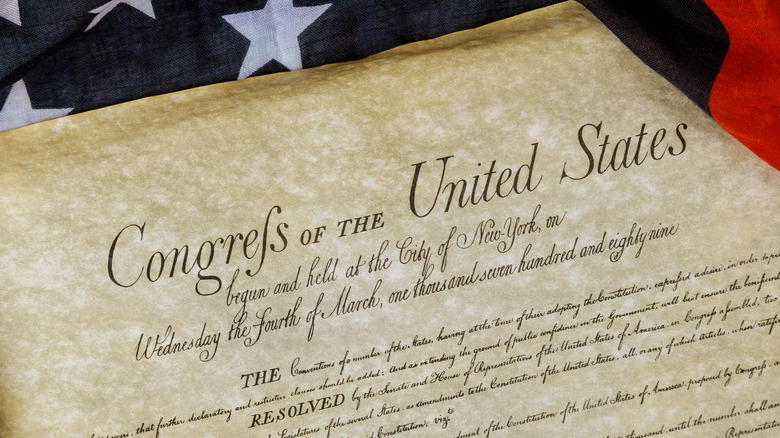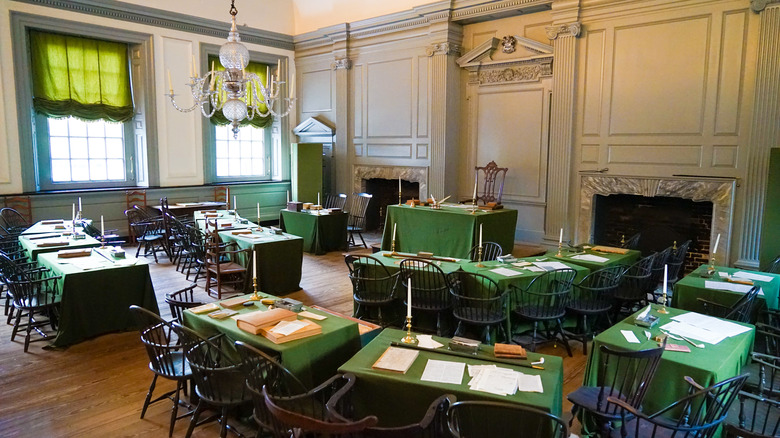The Real Reason Rhode Island Didn't Attend The Constitutional Convention
The American Revolution brought with it a high degree of uncertainty. Even outside of the fact that the colonies were at war with Britain, their motherland and the largest naval power in the world, there was no guarantee that the institutional path they set themselves on would work as intended. It is for this reason that although the Declaration of Independence passed with near unanimity (New York abstained from the vote), the framework of the new nation was a more contentious subject.
According to ConstitutionFacts, only 39 of 70 appointed delegates signed the Constitution, while 15 did not even attend the convention. While many were absent because of business and personal matters, the reasoning of those who intentionally did not sign or attend largely related to the lack of a Bill of Rights and perceived violations of states' rights. The most extreme expression of such sentiments came from Rhode Island which, in spite of having been the first state to break from the crown (per History), did not send any delegates at all.
Liberty and money led to fierce Anti-Federalism from Rhode Island
The issues of autonomy within the greater union, and a lack of assurance for personal liberty, were the leading reasons for Rhode Island's dismissal of constitutional ratification (via Rhode Island Secretary of State). Yet the reason they acted this way, as opposed to other states that shared their concerns yet attended the convention anyway, had much to do with Rhode Island's top political party. According to the Associated Press, at this time the "Country Party" saw major electoral victories in the state legislature.
The party was in large part composed of farmers whose Anti-Federalist politics were rooted in fear that a transition from state to federal currency would have a severe impact on their business. As others in the state similarly worried that the transition would leave them destitute, acceptance of Rhode Island's own currency was enforced within its borders during this time. Many states and politicians chastised them for their stubbornness, including George Washington, and it was only in 1790 that Rhode Island finally caved to the pressure and ratified the Constitution (via the History, Art & Archives site of the U.S. House of Representatives).

